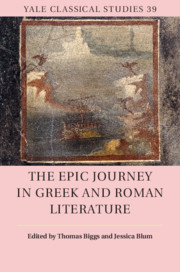26 results
Distinct evolutionary lineages of Schistocephalus parasites infecting co-occurring sculpin and stickleback fishes in Alaska
-
- Journal:
- Parasitology / Volume 151 / Issue 6 / May 2024
- Published online by Cambridge University Press:
- 09 May 2024, pp. 626-633
-
- Article
-
- You have access
- Open access
- HTML
- Export citation
Femtosecond Laser Heat Affected Zones in Aluminum
-
- Journal:
- Microscopy and Microanalysis / Volume 28 / Issue S1 / August 2022
- Published online by Cambridge University Press:
- 22 July 2022, pp. 864-865
- Print publication:
- August 2022
-
- Article
-
- You have access
- Export citation
24 - Precision Behavioral Management (PBM): A Novel Genetically Guided Therapy to Combat Reward Deficiency Syndrome (RDS) Relevant to the Opiate Crisis
- from Part V - Ongoing and Future Research Directions
-
-
- Book:
- The Cambridge Handbook of Substance and Behavioral Addictions
- Published online:
- 13 July 2020
- Print publication:
- 06 August 2020, pp 297-306
-
- Chapter
- Export citation
In situ Cathodoluminescence and Monitoring Electronic Structure Change Using Optical TEM Holder
-
- Journal:
- Microscopy and Microanalysis / Volume 25 / Issue S2 / August 2019
- Published online by Cambridge University Press:
- 05 August 2019, pp. 2302-2303
- Print publication:
- August 2019
-
- Article
-
- You have access
- Export citation
Machine Learning for Challenging EELS and EDS Spectral Decomposition
-
- Journal:
- Microscopy and Microanalysis / Volume 25 / Issue S2 / August 2019
- Published online by Cambridge University Press:
- 05 August 2019, pp. 180-181
- Print publication:
- August 2019
-
- Article
-
- You have access
- Export citation
Abbreviations
-
- Book:
- The Epic Journey in Greek and Roman Literature
- Published online:
- 31 May 2019
- Print publication:
- 23 May 2019, pp xiii-xiv
-
- Chapter
- Export citation

The Epic Journey in Greek and Roman Literature
-
- Published online:
- 31 May 2019
- Print publication:
- 23 May 2019
Index Locorum
-
- Book:
- The Epic Journey in Greek and Roman Literature
- Published online:
- 31 May 2019
- Print publication:
- 23 May 2019, pp 314-318
-
- Chapter
- Export citation
Acknowledgments
-
- Book:
- The Epic Journey in Greek and Roman Literature
- Published online:
- 31 May 2019
- Print publication:
- 23 May 2019, pp xi-xii
-
- Chapter
- Export citation
Part I - Odyssean Journeys
-
- Book:
- The Epic Journey in Greek and Roman Literature
- Published online:
- 31 May 2019
- Print publication:
- 23 May 2019, pp 9-88
-
- Chapter
- Export citation
Part IV - Unearthly Journeys
-
- Book:
- The Epic Journey in Greek and Roman Literature
- Published online:
- 31 May 2019
- Print publication:
- 23 May 2019, pp 241-291
-
- Chapter
- Export citation
Contributors
-
- Book:
- The Epic Journey in Greek and Roman Literature
- Published online:
- 31 May 2019
- Print publication:
- 23 May 2019, pp viii-x
-
- Chapter
- Export citation
Part II - Gendered Maps
-
- Book:
- The Epic Journey in Greek and Roman Literature
- Published online:
- 31 May 2019
- Print publication:
- 23 May 2019, pp 89-144
-
- Chapter
- Export citation
Plate Section (PDF Only)
-
- Book:
- The Epic Journey in Greek and Roman Literature
- Published online:
- 31 May 2019
- Print publication:
- 23 May 2019, pp 325-328
-
- Chapter
- Export citation
General Index
-
- Book:
- The Epic Journey in Greek and Roman Literature
- Published online:
- 31 May 2019
- Print publication:
- 23 May 2019, pp 319-324
-
- Chapter
- Export citation
Copyright page
-
- Book:
- The Epic Journey in Greek and Roman Literature
- Published online:
- 31 May 2019
- Print publication:
- 23 May 2019, pp iv-iv
-
- Chapter
- Export citation
Chapter 1 - Introduction
-
-
- Book:
- The Epic Journey in Greek and Roman Literature
- Published online:
- 31 May 2019
- Print publication:
- 23 May 2019, pp 1-8
-
- Chapter
- Export citation
Contents
-
- Book:
- The Epic Journey in Greek and Roman Literature
- Published online:
- 31 May 2019
- Print publication:
- 23 May 2019, pp v-vi
-
- Chapter
- Export citation
References
-
- Book:
- The Epic Journey in Greek and Roman Literature
- Published online:
- 31 May 2019
- Print publication:
- 23 May 2019, pp 292-313
-
- Chapter
- Export citation
Part III - Rome’s Journey: Constructions of Rome through Travel
-
- Book:
- The Epic Journey in Greek and Roman Literature
- Published online:
- 31 May 2019
- Print publication:
- 23 May 2019, pp 145-240
-
- Chapter
- Export citation

